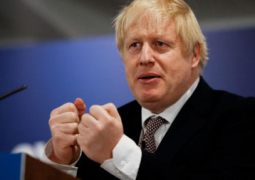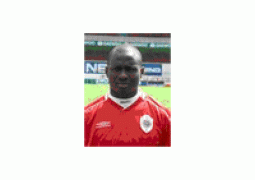During this meeting, the heads of State and Government will reaffirm their commitment and intensify their efforts to end the AIDS epidemic by 2030, a legacy they wish to leave for present and future generations.
The meeting comes as a new report issued by UNAIDS shows that the number of people accessing antiretroviral medicines has more than doubled since 2010. An estimated 17 million people were accessing life-saving antiretroviral medicines at the end of 2015, with an additional 2 million gaining access over a 12-month period.
“Over the next five years we have a fragile window of opportunity to shift gear and put the global HIV response firmly on the Fast-Track to end the AIDS epidemic,” said UNAIDS Executive Director Michel Sidibé. “This meeting will be critical to harnessing the momentum we have built and securing global commitment to break the epidemic for good.”
Africa, where nearly 68 percentof new HIV infections worldwide occurred in 2014, remains the greatest challenge. With nearly 25.6 million people living with HIV, only about 41 percent have access to treatment, and nearly 1.32 million women living with HIV do not have access to services to prevent mother-to-child transmission of HIV and the continent remains the most affected by the HIV/AIDS epidemic.
Issues such as the current economic crisis, new epidemics of Ebola and Zika, terrorism, weak health systems and the lack of universal health coverage are constraints that UN member States will consider in their discussions, if they are to end AIDS by 2030.
“Aggressive efforts to combat the epidemic in sub-Saharan Africa are key to eradicating the disease”, said Dr Djibril Diallo, UNAID Director, Regional Support Team, West and Central Africa.
“New dynamism should be instilled in the AIDS response in sub-Saharan Africa over the next five years and this High Level Meeting is an important step to define new directions to defeat AIDS,” said Dr Djibril Diallo.
The meeting, convened every five years by the President of the United Nations General Assembly, in consultation with representatives of member States and UNAIDS is an opportunity for all key actors in the AIDS response to set short- and medium-term bold objectives. This year it will reaffirm the AIDS response as a model for achieving the Sustainable Development Goals.
Each year, nearly 36 percent of new HIV infections are diagnosed in people aged 15 to 24 years, and the mortality rate from AIDS among teenagers is increasing. A town hall meeting with African youth and the President of Gabon, Ali Bongo Ondimba, is scheduled for June 9th from 1:00 to 2:30 pm, Conference room 1, United Nations Building, to define strategies to enhance youth involvement in the HIV/AIDS response in Africa. President Bongo also will participate in a press breakfast that will be hosted by the U.S.-based National Association of Black Journalists with the support of the National Newspaper Publishers Association.
The UNAIDS “Protect the Goal” campaign, which aims to raise awareness about HIV and to mobilize young people to actively participate in the prevention efforts against the virus, will also be on the agenda.
The other essential component for successfully ending AIDS by 2030 is the need to reduce the dependence of Africa on external funding and drug importation. A session on accelerating local pharmaceutical production in ECOWAS and Africa will be held on June 9th from 18.15 to 20.30, Conference room 1, United Nations Building in collaboration with key private sector partners.
This High Level Meeting on HIV/AIDS will provide a multi-sectoral platform to discuss the new UNAIDS target, which aims to ensure that, by the year 2020, 90 per cent of all people living with HIV will know their status; 90 per cent of all people living with HIV will receive sustained antiretroviral therapy; and 90 per cent of all people receiving antiretroviral therapy will have viral load suppression.
“If we are to achieve the goal of ending AIDS by 2030, it is imperative to have not only the commitment of the states, but also of civil society and the youth,” Dr Diallo said.
Source: UN (DAKAR, June 2, 2016)



